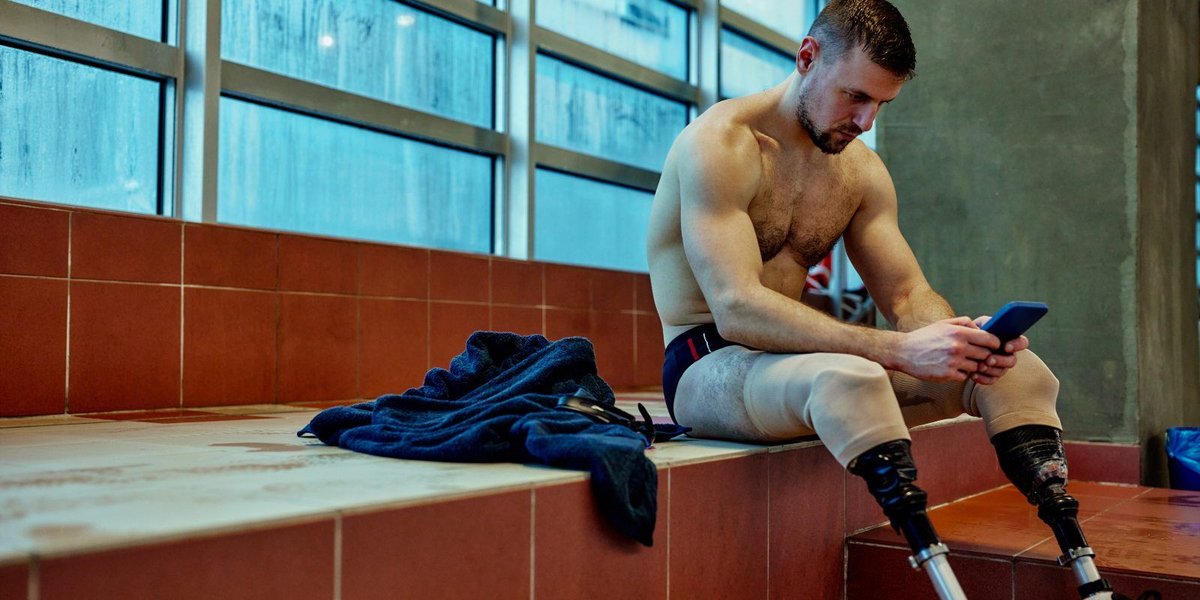PERSONALIZED MILITARY PROSTHETICS WILL HAVE MILITARY MEMBERS’ REAL TATTOOS
COMMENT
SHARE

Advertisement
A staggering 150,000 servicemen and women receive lower-limb amputations annually, and approximately 20,000 receive upper-limb amputations. Coping with this drastic change to one’s physical body and adjusting to prosthetics takes time. The road to recovery is long and full of hurdles. After an amputation, individuals must come to terms with this new reality, including the physical pain and psychological implications.
At Walter Reed, physicians and scientists are teaming up to support American heroes on their road to recovery. They have taken a unique approach to ease the emotional toll that losing a limb can have on Veterans and are helping improve their quality of life. How are they doing this? By copying personal and military tattoos to their prosthetics! Let’s take a closer look at what this impactful program is accomplishing.
Suggested read: Walter Reed Medical Center: In-Depth Welcome
Walter Reed Military Medical Center Prosthetics Developments
Starting in 2022, Walter Reed Military Medical Center is enacting a new policy for Veterans who have lost a limb or limbs during their time in the military. If an amputee had any permanent tattoos before losing their limb and would like the same tattoo/style on their prosthetics or artificial limb cover, then the hospital will work to make that request a reality. The program was developed to help make the transition to a prosthetic less scary and raise spirits. With the mission of helping Veterans restore their lives and honoring their sacrifices, the program strives to ensure that military members are proud of their prosthetics and feel encouraged to show their family and friends. Before Walter Reed began tattooing prosthetics, Louis Gilbert, a retired Navy dental technician at the hospital, created prosthetic eyes for Veterans and non-military patients. Gilbert and colleagues made custom prosthetic and “specialized” eyes with Marine emblems or sports team logos for patients. The prosthetics development teams at Walter Reed are making medical history and helping the lives of thousands in the process.The Psychological and Emotional Impact of the Program
The creators of the program at Walter Reed Military Medical Center are striving to help Veteran amputees rekindle their confidence and excitement about life as they open new doors of opportunity for military prosthetics development. The loss of meaningful tattoos can take a toll on one’s mental health and one’s perception of their new body. This is especially true for military members, as many Veterans’ tattoos hold personal significance. The program works to help Veterans regain what they’ve lost, starting with a physical tattoo. A prosthetic leg tattoo or arm tattoo can completely change one’s outlook on life. This seemingly simple act is working to improve the mental health of hundreds of Veterans around the country. So far, the program has had a sizable impact on the prosthesis recipients and their families. Those at Walter Reed Medical Center hope that the prosthetics tattoo/s program continues to touch the lives of Veterans and their families.Advertisement
The Process of Obtaining a Prosthetic
Veterans who are receiving VA care are eligible to receive free prosthetic appliances, services, and equipment from the VA. The VA’s Rehabilitation and Prosthetic Services provides servicemen and women with access to comprehensive rehabilitation and prosthetic services that are affordable and match individuals with a prosthetic in a timely manner. This center has locations around the U.S. for custom fabrication and fitting of medical devices, prosthetics, and aids. To obtain a military prosthetic leg or other prosthetic devices through the VA, your discharge status must be a condition other than dishonorable, and you must have a service-connected injury or disability. Once enrolled in the VA healthcare system, you can obtain a prosthetic through the “Medical Benefits Package.” With the average age of military amputees being 25, the VA has developed a number of disability benefits to assist Veterans during this trying time, including:- Clothing allowance.
- Prosthetic and assistive device compensation.
- Convalescence payments.
- Automobile allowance to cover specialty equipment if amputation hinders driving.
- Potential special monthly compensation.
Does the Military Pay for Prosthetics?
The short answer is — yes! The Department of Defense, the VA, and the Center for Limb Loss and Mobility have collaborated to cover the costs of prosthetics for Veterans. Committed to making the process of obtaining a prosthetic easier for Veterans, the military funds ongoing mobility research to help restore the quality of life and increase comfort levels in military amputees.Enhancing Life and Providing Joy
Walter Reed Medical Center is changing the lives of Veterans one prosthetic at a time. While many Veterans opt to have the same tattoos on the prosthetic as they did on their body, some may want a different design as a way to start fresh. For those who want to see what the tattoos would look like on their prosthetics before investing the time and money, custom tattoo sleeves for prosthetic legs or arms are made available to Veterans before they make the investment and commitment. Walter Reed is actively working to help Veteran amputees adjust to their new normal while providing them with a semblance of what their life was like prior to having prosthetics. Helping Veterans regain a missing piece of themselves, Walter Reed deserves our thanks for working to improve the mental health and quality of life for our nation’s Veterans. Read next: American Tattoo Society Opens at MacDill AFBJoin the Conversation
Written by
Lauren Piette
Editor at MyBaseGuide
Lauren Piette is a content strategist and editor at Military Brands, where she curates and polishes storytelling that informs, supports, and empowers the military community. With experience across dig...
CredentialsHubspot Digital Marketing CertificateSocial Media Marketing CertificationSEO Principles Certification
ExpertiseJournalismMilitary LifeSocial Media Strategy
Lauren Piette is a content strategist and editor at Military Brands, where she curates and polishes storytelling that informs, supports, and empowers the military community. With experience across dig...
Credentials
- Hubspot Digital Marketing Certificate
- Social Media Marketing Certification
- SEO Principles Certification
Expertise
- Journalism
- Military Life
- Social Media Strategy
Advertisement
SHARE:



